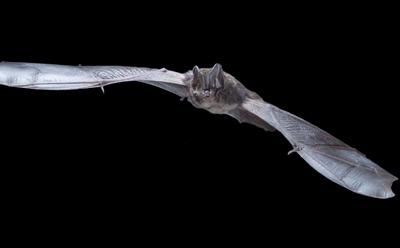Scientist calls on public to help ‘unlock’ genes of threatened bat species

A University of Southampton scientist is calling on the public’s help in her bid to unlock the genetic secrets of an endangered bat species.
Dr Orly Razgour is championing the barbastelle bat as part of the Wellcome Trust Sanger Institute’s 25 Genomes project, a scheme to ‘map’ the genes of 25 UK species to mark the research organisation’s 25th anniversary.
Five of the species that will have their genomes (their complete sets of genetic material) sequenced will be chosen in a public vote.
Biologist and bat expert Dr Razgour is urging people to vote for the barbastelle, whose numbers across Europe and the UK are dwindling because of the destruction of its natural forest habitats and the effects of chemicals used in farming on the moths it eats.
The species, which prefers to make its home in the crevices of old trees in mature forests, has already disappeared from some countries. In the UK, its breeding roosts are only found in a handful of locations, including Mottisfont, near Romsey, Hampshire.
Information obtained from the sequencing of the barbastelle’s genome would help scientists including Dr Razgour understand how adaptable the species is to future threats, and how and why bats evolved echolocation and flight.
Dr Razgour, who is researching the effects of climate and environmental change on bats as part of a five-year research fellowship at the University of Southampton, said: “The barbastelle is a beautiful and fascinating species that has fought hard to survive, flying several kilometres every night in search of food and moving home frequently – sometimes every few days – to avoid becoming prey itself.
“The destruction of its natural habitat by humans through the cutting down of trees for wood means it is more endangered than ever.
“Now we have a wonderful opportunity to find out invaluable genetic information about the barbastelle that would inform our research and help develop tools that policy-makers and conservations can use to help preserve this and other endangered species.”
To register and vote, click here.